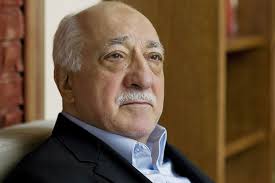No one, however, is worse placed to preach about the dangers of Gulenism than Mr Erdogan, whose government was once joined at the hip with the movement. By locking up everyone linked to it, including lawyers, teachers and charity workers, Mr Erdogan has ditched the rule of law in favour of a vendetta. He has not helped his case by accusing nearly all of his other opponents of treason or terror. “People in America might be more receptive to Erdogan’s side of the story if he had more credibility,” says Gonul Tol of the Middle East Institute, a Washington think-tank. “But he has none.”

Today the cemaat seems to be a spent force. Inside Turkey, it has no room to breathe. Because it alienated almost every part of Turkish society, there is no one left to defend it, aside from a handful of human- rights activists. Abroad, the Gulenists are better off, but still on the back foot. Mr Erdogan has successfully pressed a few countries in Africa and Central Asia to sever links with Gulen schools and businesses. Funding has begun to dry up. Long-standing followers are leaving in droves and new ones are almost impossible to recruit. Mr Gulen commands blind obedience. His deputies, says Mr Bacik, are all theologians with no experience outside the group. There are no women in positions of power. For a movement that portrays itself as a modernising force in Islam, this is not a good look. Mr Gulen himself is approaching 80 and in poor health. When he dies, what remains of the cemaat is likely to crumble.
译文由可可原创,仅供学习交流使用,未经许可请勿转载。












